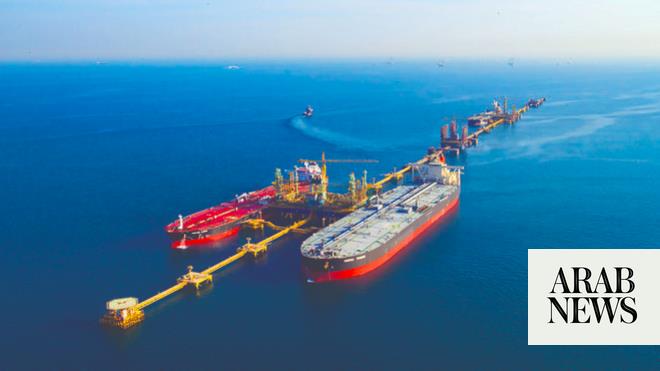
New supply contracts make it very likely that Saudi Aramco next year will become China’s largest supplier
Russia currently accounts for the lion’s share of China’s oil imports, supplying some $23.7 billion worth of crude last year
LONDON: Saudi Aramco is moving closer to becoming China’s largest supplier after striking five new crude supply deals with Beijing.
It will help to take the total volume to 1.67 million barrels per day (bpd).
“The new supply contracts make it very likely that Saudi Aramco next year will become China’s largest supplier, a position it also held from 2006 until 2016,” the Saudi oil company said in a statement.
Russia currently accounts for the lion’s share of China’s oil imports, supplying some $23.7 billion worth of crude last year, or 14.6 percent of its total oil imports.
Top Aramco officials this month attended the first China International Import Expo in Shanghai.
The delegation included Ahmed Al-Khunaini, manager of Saudi Aramco’s Crude Oil Sales and Marketing Department, and Anwar Al-Hejazi, Aramco Asia president.
Aramco earlier agreed a crude oil supply agreement with Zhejiang Petroleum and Chemical Co. (ZPC) on the sidelines of the Asia Pacific Petroleum Conference (APPEC) in Singapore.
“Large, integrated crude-to-chemical projects like ZPC and Hengli are the future of China’s downstream industry and I am excited Saudi Aramco will be part of their success story,” said Saudi Aramco Senior Vice President Abdulaziz Al-Judaimi.
The new supply agreements are the result of Aramco’s marketing efforts that focus on customer diversification, strategic relationships, and tapping regional demand previously not supplied by Saudi Aramco, the national oil company said.
They are an important part of diversifying Saudi Aramco’s customer base and capturing a large share of China’s future incremental oil demand, which will increasingly come from private refiners.
Annual economic growth of more than 6 percent is supporting demand for oil imports in China as the country adds more refining and petrochemical capacity.
Beijing is also seeking to reduce its reliance on US crude imports amid a trade war with Washington, analysts say.
“Chinese buyers, anticipating that crude and LNG could go on the list if tensions escalate further, are looking to alternative sources,” Richard Mallinson, co-founder of London consultancy Energy Aspects, told Arab News in August.
OPEC already provides 56 percent of China’s oil imports, according to the International Energy Agency.
China’s crude imports grew year on year during the third quarter of 2018 according to data from Bloomberg NEF, despite a fall in imports coming from Iran.
China imported nearly 10 million barrels of oil per day last month.












